The MC4 project aims at finding short term and long-term solutions for carbon and glass fibre composites recycling. One of the final goals is to produce our own feedstock of glass and carbon fibres. Indeed, the recycled fibres will become the new raw materials for future development of composite materials in Europe.
Furthermore, becoming independent isn’t the only reason why this project came to life. European regulations regarding circularity and sustainability are evolving quickly and it is necessary to anticipate and act now in order to be ready when they are fully implemented.
The EU strategy for sustainable and circular textiles is one of the best examples of an evolving framework with new requirements. 5 million tons of clothing are discarded each year in the EU which represents 12kg per person. In those 5 million tons, only 1% is recycled. This number must evolve as the impact of the textile industry on the environment in perpetually increasing. This negative impact is rooted in the linear model on which the textile sector is based, which is characterized by low rates of use, reuse, repair and closed-loop fibre recycling, and which fails to prioritize quality, durability and recyclability in garment design and manufacture. The release of microplastics from textiles and footwear at all stages of their life cycle further reinforces the sector’s environmental impact.
- This strategy puts a strong emphasis on textile use for clothing, as it is the largest and most visible application of the textile production. However, these regulations will also apply to technical textiles from carbon and glass fibres used in composites and this is why it is important to act now and anticipate.

Source: Ian Abbott
The EU strategy for sustainable and circular textiles looks at the entire lifecycle of textile products and defines coordinated actions to change how we produce and consume textiles. It started in March 2022 and will continue in the next years to reach the goals set for 2030. It implements the commitments of the European Green Deal, the Circular Economy Action Plan and the European industrial strategy.
“By 2030, textile products placed on the EU market are long-lasting and recyclable, largely made from recycled fibres, free from hazardous substances, and produced with respect for social rights and the environment. In a competitive, resilient and innovative textile sector, producers take responsibility for their products throughout the value chain, including when they become waste. The circular textiles ecosystem thrives, supported by sufficient and innovative closed-loop fibre recycling capacities, and incineration and landfilling of textiles are minimized.”
This sets high goals for 2030 as it challenges companies and the entire value chain. Moreover, these measures do not only focus on the environmental aspects but on the social and economic ones as well. The concrete actions that will be implemented before 2030 include
- Set design requirements for textiles to make them last longer, easier to repair and recycle, as well as requirements on minimum recycled content
- Reverse overproduction and overconsumption, and discourage the destruction of unsold or returned textiles
- Introduce mandatory and harmonized Extender Producer Responsibility rules for textiles in all Member States and incentivize producers to design products that are more sustainable
- Restrict the export of textile waste and promote sustainable textiles globally
- Incentivize circular business models
- Encourage companies and Member States to support the objectives of the Strategy
Extended Producer responsibility is likely to be implemented in many industries (materials and applicative markets as well), such strategies and regulations may become the norm in a near future. MC4 will provide solutions contributing to this strategy, and to the green transition of applicative markets of the technical textiles industry.
If you want more information about the EU regulations you can follow these links:
EU strategy for sustainable and circular textile: Textiles strategy – European Commission (europa.eu)
The European Green Deal: The European Green Deal – European Commission (europa.eu)
Circular economy action plan:Circular economy action plan – European Commission (europa.eu)
“Funded by the European Union. Views and opinions expressed are however those of the author(s) only and do not necessarily reflect those of the European Union or the European Health and Digital Executive Agency. Neither the European Union nor the granting authority can be held responsible for them.”
